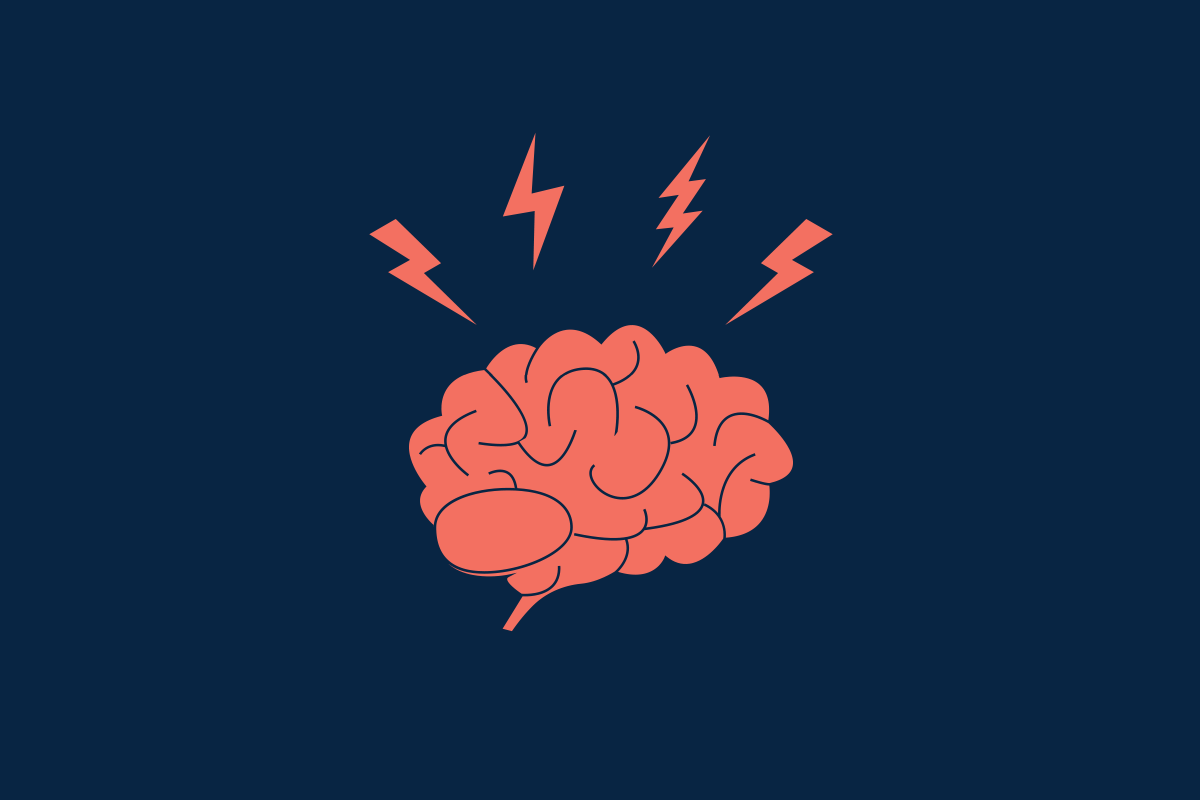A traumatic brain injury (TBI) sounds like a rare, tragic event. But, in Tennessee, TBI is more common than you might imagine.
“Each year 25,000 Tennesseans sustain a traumatic brain injury,” says Dr. Ian Bushell, a family medicine physician and medical director for BlueCross BlueShield of Tennessee. “And there are almost 3 million new traumatic brain injuries each year in the U.S. So, While we tend to assume that brain injuries of any kind are rare, we need to know the facts about TBI so we can prevent them.”
What is traumatic brain injury?
Dr. Bushell: A TBI is caused by a bump, blow or jolt to the head that disrupts the brain’s normal function. It’s often the result of a motor vehicle crash, fall, sports injury or assault, in which case there may also be a penetrating injury (such as a gunshot wound). Think of a TBI as your brain getting bruised in a way that may not heal.
There are 166 TBI-related deaths every day in the U.S.
What causes a traumatic brain injury?
Dr. Bushell: In Tennessee, the 3 leading causes of a TBI are:
- Falls
- Motor vehicle accidents
- Violence-related injuries
Falls and crashes are the most likely causes of a TBI death.
Falls
Dr. Bushell: Falls are the biggest risk for seniors. This is especially true for those who are on medications that can make them lightheaded or sluggish when standing up. Families need to pay attention to older loved ones. Look out for potential medication reactions, as well as things around the house that could trip them (rugs, cords, shoes).
Fall prevention Q&A: The facts, the causes & how to react if you do fall
Motor vehicle crashes
Dr. Bushell: This includes crashes involving cars, trucks, motorcycles and all-terrain vehicles (ATVs), which are common in Tennessee. Always wear a helmet on motorcycles or ATVs. Install a roll cage on tractors or 4-wheelers. And never operate these vehicles if you’ve been using drugs or alcohol.
Violence-related injuries
Dr. Bushell: This includes a TBI from fights, assault and domestic violence. More than half of the crimes committed against people in Tennessee are violence related.
Sports injuries
Dr. Bushell: Any sport where there’s a possibility of hitting your head can lead to a TBI. That includes boxing, football, skateboarding, hockey, soccer, baseball, basketball, skiing and cycling. A TBI from sports injury can come with memory loss during or after the event. And if your head is hit harder, you may even experience brain bleeding.
Concussions
Dr. Bushell: A concussion is often referred to by doctors as a “mild TBI” but it doesn’t mean they aren’t serious. A concussion occurs when a blow causes the head and brain to move rapidly back and forth. This sudden movement can cause the brain to bounce inside the skull, causing chemical changes or damaging brain cells. Concussion is the most common type of brain injury. And you don’t have to lose consciousness to have a concussion.
Challenges to providing treatmentDr. Bushell: Treating sports injuries and concussions can be difficult because of: 1. The importance and prevalence of sports in our culture, 2. the mystery that still surrounds brain injuries, and 3. the denial that’s built into some organizations. Athletes may minimize symptoms because they don’t want to sit out of sports. But a concussion is something that can only be diagnosed by a physician or sports trainer. The important thing — whether you’re a coach, trainer, parent or athlete — is to believe that something is happening, and to get professional treatment as soon as you can. |
What are the signs of traumatic brain injury?
Dr. Bushell: Some people appear perfectly fine after TBI, but common symptoms include:
- Memory loss, before or after the event or both
- Headaches
- Feeling tired or sleepy
- Nausea or vomiting
- Dizziness
- Difficulty walking
- Brain fog
Dr. Bushell: If you or your loved one doesn’t have the intellectual stamina to complete tasks you usually have no problem doing, see your primary care physician (PCP).
Are any populations more at-risk of traumatic brain injury?
Dr. Bushell: Males are twice as likely as females to sustain a TBI in Tennessee. More than 60% of TBI patients in Tennessee are males, who also account for 88% of deaths involving motorcycles.
Tennessee male health report card: 7 key findings + tips for taking control
Groups also more likely to be affected
- Minorities
- Service members
- Veterans
- People experiencing homelessness
- People in correctional facilities
- Survivors of intimate partner violence
- People who live in rural areas
How do you prevent traumatic brain injury?
Dr. Bushell: It starts with awareness.
1. Know the activities that put you at risk.
Dr. Bushell: Any activity with the possibility of hitting your head can put you at greater risk for a TBI. Even what people used to think of as “simple concussions” from these types of activities, are actually very serious. And once you’ve had one concussion, you’re at risk of having more. This also puts you at higher risk of permanent, lasting brain injury.
2. Wear helmets.
Dr. Bushell: Parents need to make sure kids are wearing helmets during sporting events and during recreational activities. The same goes for adults.
3. Seek medical treatment.
Dr. Bushell: Anytime you suspect a concussion, get medical guidance. A provider can make a diagnosis, follow your symptoms and advise when you can go back to an activity safely.
To learn more about concussion and serious brain injury, visit the CDC’s Heads Up Program.
Get more information about specific health terms, topics and conditions to better manage your health on bcbst.com. BlueCross BlueShield of Tennessee members can access wellness-related discounts on fitness products, gym memberships, healthy eating and more through Blue365®. BCBST members can also find tools and resources to help improve health and well-being by logging into BlueAccess and going to the Managing Your Health tab.


